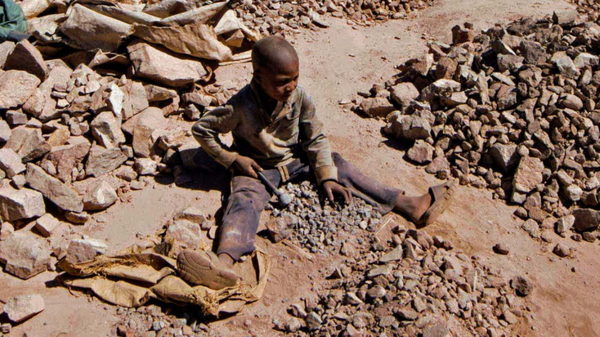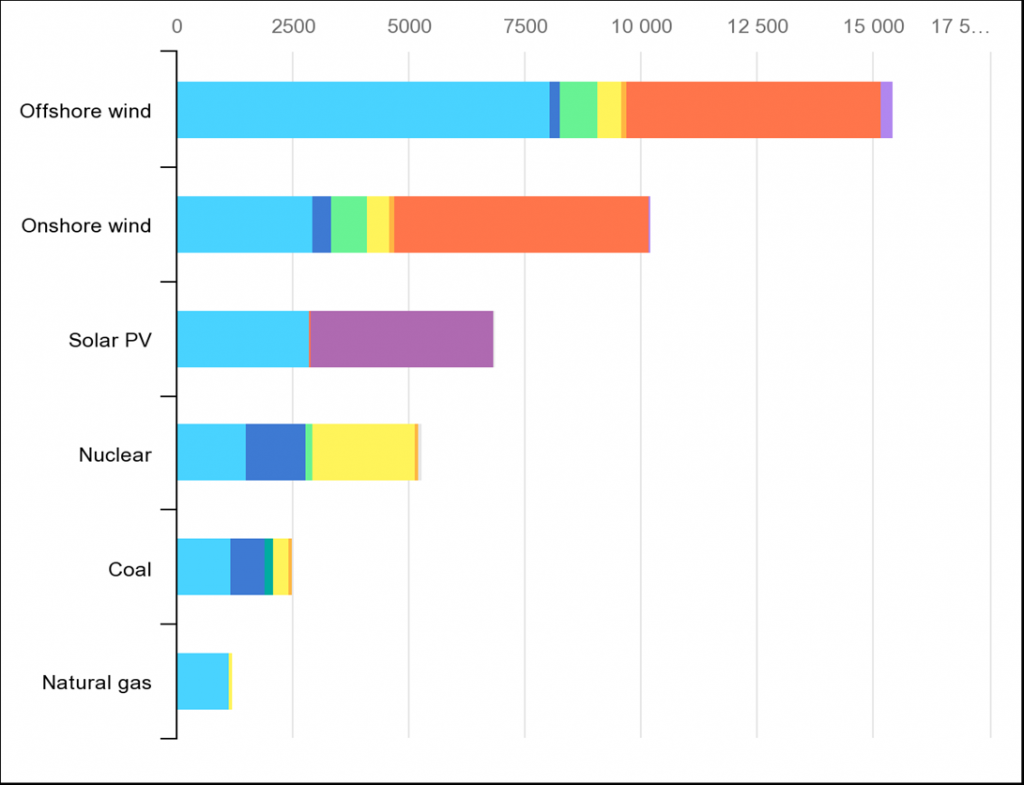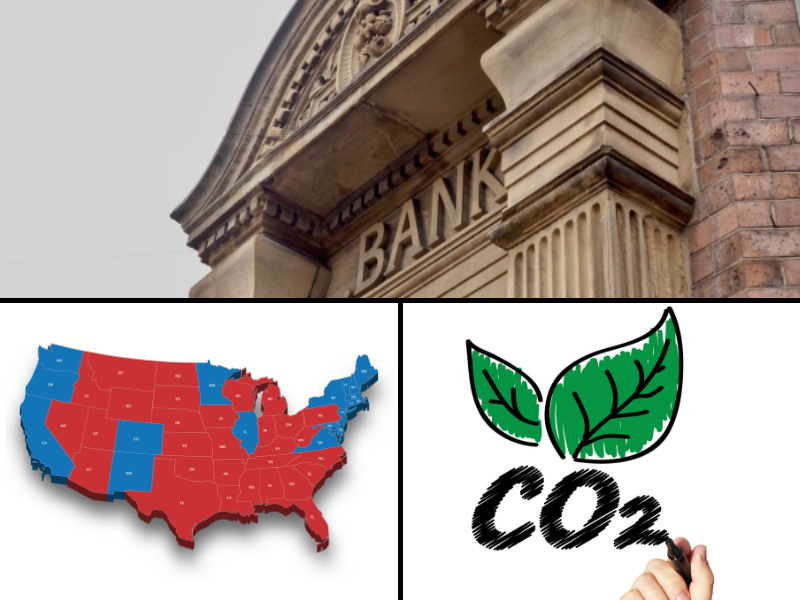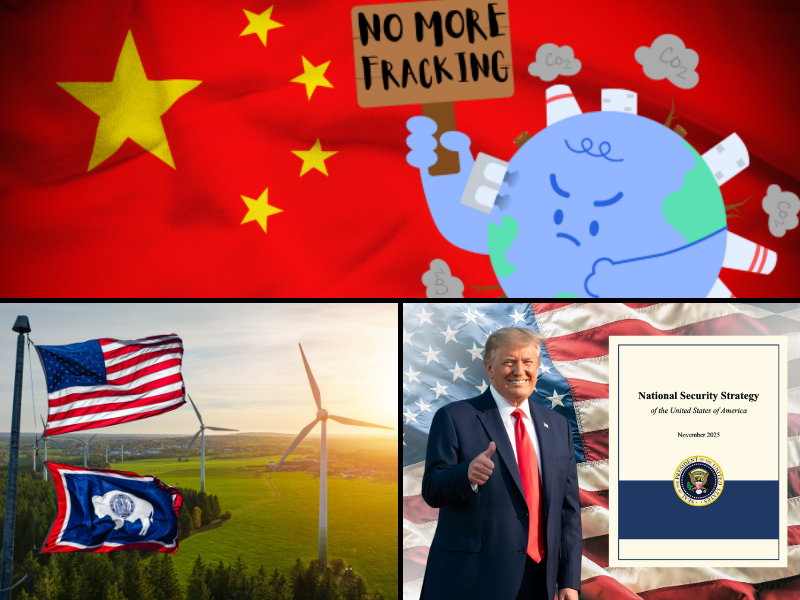YOU SHOULD SUBSCRIBE TO CLIMATE CHANGE WEEKLY.
IN THIS ISSUE:
- Slavery and Child Labor at the Core of Elites’ Green Energy Obsession
- Podcast of the Week: Climate Science Reality Check: Getting True Climate Science Recognized in Canada (Guest: Ron Davison)
- Reuters’ Long-time Science/Climate Reporter Backtracks on Climate Alarm
- Moss History Shows Glacial Decline in Antarctica Not Historically Unusual
- Video of the Week: Lauren Boebert on Climate and Politics at Heartland’s Climate Conference in 2023
- BONUS Video of the Week: Ian Plimer, a Geologist’s View of Climate Change at Heartland’s Climate Conference in 2023
- Climate Comedy
- Recommended Sites
Miss Anything at Heartland’s Climate Conference? No Problem.

Slavery and Child Labor at the Core of Elites’ Green Energy Obsession

The much touted green energy economy and the net zero goals it aims to obtain are built upon a dirty little secret: slavery, child labor, and environmental destruction. In this essay, I’ll only be discussing the first two.
I was a presenter at the 15th International Conference on Climate Change, on a panel titled “Green Energy And Exploitation.” My presentation pointed out that a large percentage of the rare earths and critical minerals required for modern electronics, in general, and green energy technologies, in particular, are produced and/or refined in countries where—if labor and environmental standards exist at all (and are enforced if they do)—the standards are far short of what is required in developed countries.
The mining, refining, manufacturing, and transportation of the huge amounts of rare earths and critical minerals is a dirty business. Yet, they are vital to the magnets used in wind turbines, the cables, and stations used to transform the electricity produced by turbines and solar panels, and transmit it to its final destination, and the battery back-up needed to maintain electric power supply and reliability from those intermittent sources.
The International Energy Agency notes that offshore wind requires more scarce minerals, rare earth elements, and other critical metals per kilowatt hour of energy produced than any other source of electric power generation, renewable and non-renewable alike. Onshore wind and solar are the next most critical-mineral-intensive sources.

The vast majority of these critical minerals and elements are mined abroad, and almost all the refining of them is done by China alone.
A single on-shore wind turbine requires up to three metric tons of copper and magnets. Much larger offshore wind turbines require even more copper and magnets composed of rare earth elements. Thousands of pounds of ore must be mined to produce a single pound of rare earths, much less the combination of rare earths required for the magnets used in wind turbines. That’s not to mention the metals and sheathing for the cables and transformers. In addition, between 200,000 and 1,500,000 pounds of earth must be mined and moved to produce the lithium, cobalt, copper, nickel, and other metals and trace elements necessary to produce a battery pack for a single electric vehicle. Thus, billions of tons will have to be mined and refined to produce the thousands of batteries that will compose the large-scale battery facilities providing backup power when wind and solar facilities are offline.
The conditions under which many of these minerals are produced, from mine to finished product, are appalling. For example, cobalt is a necessary component of the green energy technologies Biden is pushing on an expedited time-scale. The Democratic Republic of Congo (DRC) is largest producer of the cobalt in the world, by far. A large percentage of the cobalt is mined under appalling working conditions at small mines. Child labor is not the exception but the norm there.
Which brings us to China. China is the largest single provider of most of the critical minerals and rare earths used around the globe, and is almost the only refiner of such products—which means minerals and rare earths mined elsewhere, often with Chinese funding, are shipped to China for processing into usable materials. Much of the mining and refining of materials in China is produced by forced or slave labor, often of persecuted religious minorities, like Falun Gong followers and Uighurs.
Because, on these points, every single picture does tell a thousand words of misery, and I had dozens of photographs to choose from that I can’t display here, I invite my readers to view the my slide show online.
To be clear, those pushing Net Zero goals, like Democrats in Congress, green energy elites profiting from government support in the form of mandates and subsidies, and the Biden administration, know child- and slave-labor are used to produce the minerals their green technologies demand. They claim to care about it, but their actions belie their words.
The U.S. State Department has acknowledged child labor is rife in the production of cobalt in the Democratic Republic of the Congo (DRC). The State Department claims it has a memorandum of understanding with the DRC to reduce the practice of child labor, but that agreement doesn’t have the force of law. The United States wants the cobalt and other minerals produced in the DRC, and nearby regions where child labor is also a problem, in large quantities—Now! Indeed, the Biden administration is leaning more on Africa to counter China’s control over U.S. energy. As such, there is little doubt child labor will continue to be part of the foundation of the growing demand for the wind turbines, solar panels, and battery packs. Increasing the demand for cobalt will increase pressure on cobalt mines to produce more, meaning either more children will be put to work, or existing child laborers will be forced to work harder under dangerous conditions.
Concerning China, once again the Biden administration acknowledged the problem of slave labor, having signed the Uighur Forced Labor Prevention Act in 2021. Still, the reality of today’s supply chain, combined with insufficient intelligence on the ground to track forced-labor manufacturing, and less still the raw materials, makes it almost a certainty the green energy transition—the massive build-out being pushed by the Biden administration—will be built with minerals, rare earth elements, and parts using Chinese slave labor.
One of my co-panelists, Vijay Jayaraj of the CO2 Coalition, discussed the flip side of this problem, recently: the developed world’s attempt to suppress the development and use of fossil fuels in developing countries.
A prominent form of modern slavery is climate imperialism, or eco-colonialism, wherein restrictive energy policies conceived and promoted by politicians in Western economies are forced on some of the world’s poorest. Though branded as environmentally friendly, these outlandish policies deny economic growth to those who most need it in Africa’s poorest countries.
According to the World Bank, in 2019, over 41% of the population in sub-Saharan Africa lived in extreme poverty. Poor households in Africa often lack access to necessities such as clean water, electricity, cooking fuel and health care. The region’s weak economy coupled with poor infrastructure impedes access to education and job opportunities, further exacerbating poverty.
The West’s war on fossil fuels, which is being promoted with draconian polices in developing countries, adds to the obstacles of overcoming this deprivation.
In economic terms, Western climate and energy demands and restrictions are imposing severe negative externalities on developing countries. In moral, terms, the West’s climate obsession is immorally condemning present generations of impoverished peoples and nations to continued penury and early death, to help much wealthier present and future generations of people in developed countries avoid the cost and inconvenience of adapting to future climate conditions.
Sources: Daily Caller; International Energy Agency





